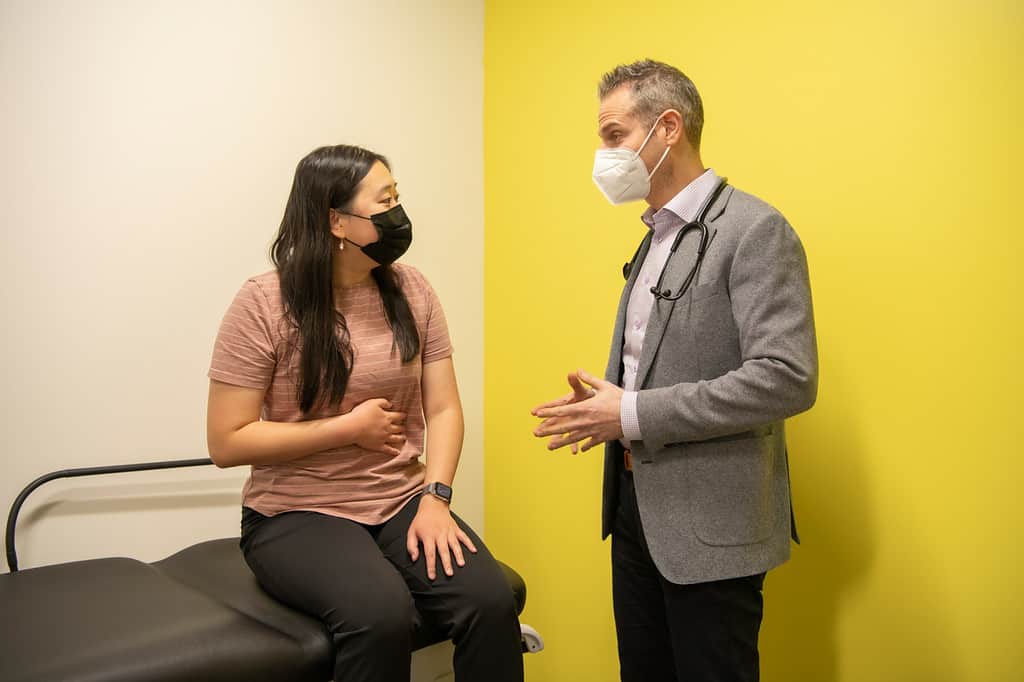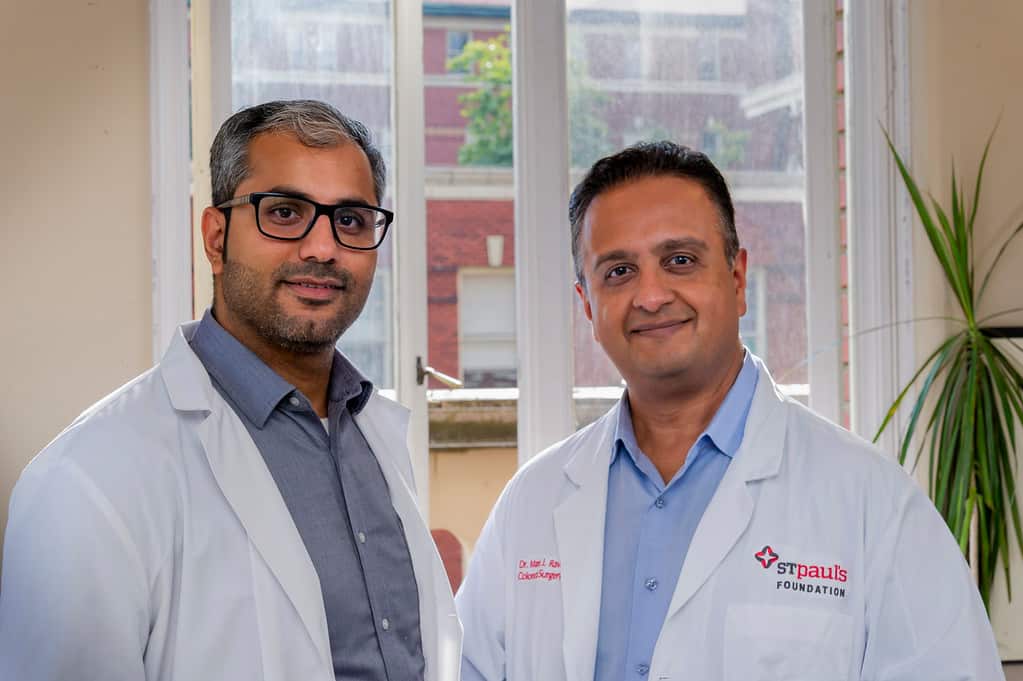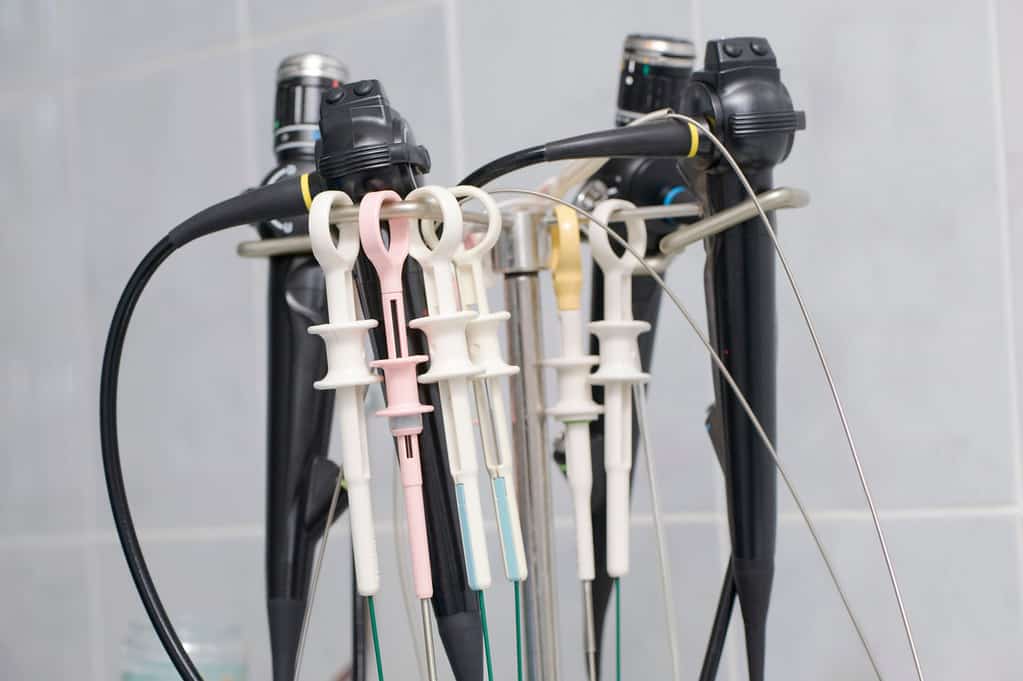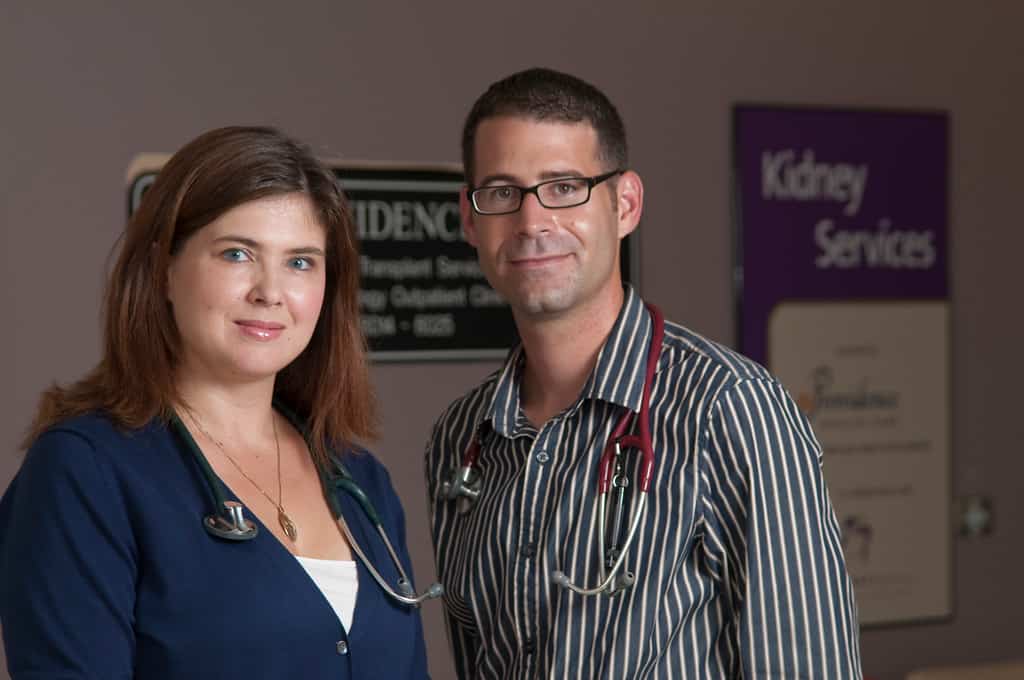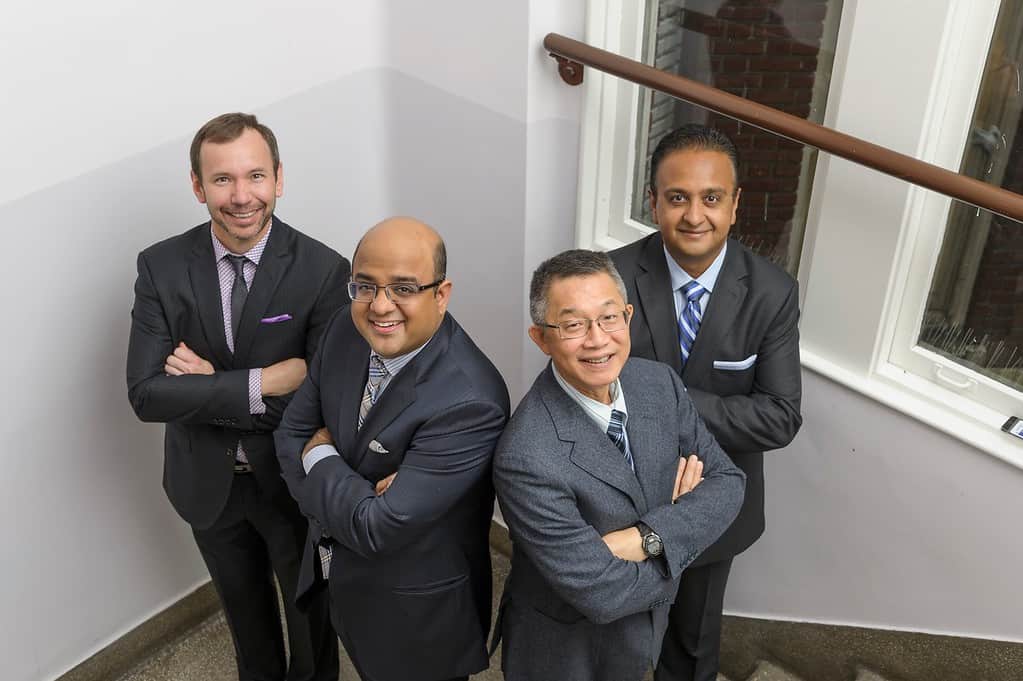From top to bottom
Digestive health means so much more than you can imagine!
At Providence, some of the most complex areas of care fall under a very large umbrella we call “digestive health.” It might help to think of it like your digestive tract: it can be up to 9 metres long with a lot of moving parts. If something goes wrong with just about any of them, you need expert care ASAP.
Right now, highly-specialized teams at St. Paul’s Hospital are saving and improving the lives of patients needing sophisticated digestive health care. This may include IBD, colorectal surgery, liver disease, endoscopy, colon cancer screening and management, diabetes, and alternative nutrition.
Digestive health is a big area of care and it has a very big impact across BC. Here are just a few of the specialties that truly set St. Paul’s apart.
Right now, IBD is chronic and incurable. But we’re optimistic for our patients today and our future patients at the new Digestive Health Centre. Help us get to the bottom of IBD.
Canada has one of the highest rates of IBD in the world. And it’s increasing. In an effort to change this, our IBD specialists have teamed up with our colorectal surgeons and others to advocate for a comprehensive Digestive Health Centre at the new St. Paul’s Hospital. The Centre would include care for all gastroenterology concerns: IBD, colon cancer screening, colorectal surgery, liver, nutrition counselling, and more. It’s a bold and innovative concept that’s never been done before.
Naturally, Providence is leading the way.
